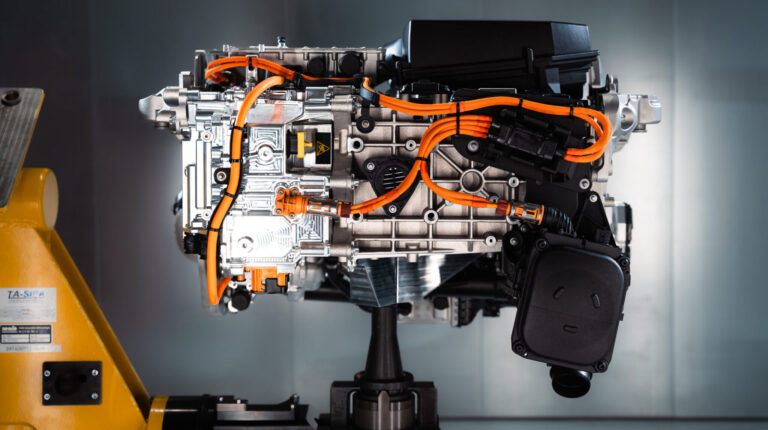BMW Group has begun preparing for series production of fuel cell systems. The third generation of the group’s hydrogen drive system will be manufactured in Steyr from 2028, and the company’s competence centers in Munich and Steyr are already building prototypes. Other drive system components will come from the technology hub in Landshut.
“The launch of the first-ever fuel cell production model from BMW in 2028 will add another exceptionally efficient high-performance drive system with zero emissions to our technology-open product portfolio,” said Joachim Post, a member of the board of management of BMW AG. “The choice of Steyr as the production location clearly demonstrates our commitment to a European innovation footprint. The BMW competence centers in Munich and Steyr have a key role to play in the development of pioneering fuel cell systems.”
Compact, powerful, efficient
The first generation of the fuel cell drive system was supplied entirely by the Toyota Motor Corporation (Toyota) and was fitted in the BMW 535iA back in 2014. The second generation made its debut in the current BMW iX5 Hydrogen pilot fleet. This time, BMW has developed the overall fuel cell system itself, while the individual fuel cells came from Toyota.
For the latest generation, the BMW Group and Toyota jointly developed the powertrain system for passenger vehicles, with the core fuel cell technology creating synergies for commercial and passenger vehicle applications.
The third generation has reduced the space taken up by the fuel cell system by 25% as the increase in power density has enabled a compact construction compared with the preceding generation. The system is set to be substantially more efficient than its predecessor thanks to upgraded individual parts that are based on the drive technology jointly developed with Toyota, and improved operating strategies. These advances result in increased range and output combined with lower energy consumption, which represents a significant improvement over the second generation. The latest fuel cell can also be integrated into future vehicle architectures.
Technological expertise: Munich
BMW is making prototypes of the highly efficient fuel cell systems at the company’s competence center for hydrogen in Munich. An electrochemical reaction takes place in the fuel cell, which involves hydrogen from the tanks reacting with oxygen from the air. This reaction produces electricity that powers the electric motor and thereby supplies the vehicle with energy.
The fuel cell system comprises not only the fuel cells themselves but also all the components and systems needed for their efficient operation. These include the cooling system and hydrogen and air subsystems.

Prototype production is currently focused on development and validation of the assembly and testing processes, with particular attention paid to industrialization, quality assurance and scalability in the longer term. In parallel, the prototypes are being used to develop an operating strategy and for validation on both a system and a vehicle level. These steps aim to prepare the technology for series production.
Series production: Steyr
Production of the fuel cell systems is due to get underway in 2028 at BMW Group Plant Steyr. New test rigs and production facilities are being built, and buildings are being modified to incorporate the drive technology and refine it.
“We are proud to be producing another innovative drive technology at Plant Steyr in the future alongside the latest generation of electric motors and combustion engines,” said Klaus von Moltke, senior vice president of engine production at BMW and director of BMW Plant Steyr. “This, together with the development expertise we have available on-site, makes our plant a prime example of the BMW Group’s technology-open approach.”
Component manufacture: Landshut
Landshut is responsible for manufacturing components for the fuel cell vehicles. Construction of hardware and equipment for the series production of the BMW Energy Master will start in late May 2026. The BMW Energy Master controls the supply of power in the vehicle across a range from 400- 800V. It also acts as the interface for data from the high-voltage battery. This control unit is supplemented by various components that are specifically required for the fuel cell application. Production of the prototypes will begin in mid-2026.


